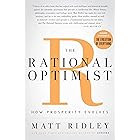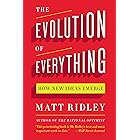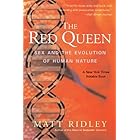Your Memberships & Subscriptions

Download the free Kindle app and start reading Kindle books instantly on your smartphone, tablet, or computer - no Kindle device required.
Read instantly on your browser with Kindle for Web.
Using your mobile phone camera - scan the code below and download the Kindle app.

OK
Image Unavailable
Color:
-

-
-
- To view this video download Flash Player
-

-
 VIDEO
VIDEO -

 Audible sample Sample
Audible sample Sample 


How Innovation Works: And Why It Flourishes in Freedom Kindle Edition

Explore your book, then jump right back to where you left off with Page Flip.
View high quality images that let you zoom in to take a closer look.
Enjoy features only possible in digital – start reading right away, carry your library with you, adjust the font, create shareable notes and highlights, and more.
Discover additional details about the events, people, and places in your book, with Wikipedia integration.
Building on his national bestseller The Rational Optimist, Matt Ridley chronicles the history of innovation, and how we need to change our thinking on the subject.
Innovation is the main event of the modern age, the reason we experience both dramatic improvements in our living standards and unsettling changes in our society. Forget short-term symptoms like Donald Trump and Brexit, it is innovation that will shape the twenty-first century. Yet innovation remains a mysterious process, poorly understood by policy makers and businessmen alike.
Matt Ridley argues that we need to see innovation as an incremental, bottom-up, fortuitous process that happens as a direct result of the human habit of exchange, rather than an orderly, top-down process developing according to a plan. Innovation is crucially different from invention, because it is the turning of inventions into things of practical and affordable use to people. It speeds up in some sectors and slows down in others. It is always a collective, collaborative phenomenon, involving trial and error, not a matter of lonely genius. It happens mainly in just a few parts of the world at any one time. It still cannot be modeled properly by economists, but it can easily be discouraged by politicians. Far from there being too much innovation, we may be on the brink of an innovation famine.
Ridley derives these and other lessons from the lively stories of scores of innovations, how they started and why they succeeded or failed. Some of the innovation stories he tells are about steam engines, jet engines, search engines, airships, coffee, potatoes, vaping, vaccines, cuisine, antibiotics, mosquito nets, turbines, propellers, fertilizer, zero, computers, dogs, farming, fire, genetic engineering, gene editing, container shipping, railways, cars, safety rules, wheeled suitcases, mobile phones, corrugated iron, powered flight, chlorinated water, toilets, vacuum cleaners, shale gas, the telegraph, radio, social media, block chain, the sharing economy, artificial intelligence, fake bomb detectors, phantom games consoles, fraudulent blood tests, hyperloop tubes, herbicides, copyright, and even life itself.
- LanguageEnglish
- PublisherHarper
- Publication dateMay 19, 2020
- File size2027 KB
Customers who bought this item also bought
 Innovation often disappoints in its early years, only to exceed expectations once it gets going, a phenomenon I call the Amara hype cycle, after Roy Amara, who first said that we underestimate the impact of innovation in the long run but overestimate it in the short run.Highlighted by 860 Kindle readers
Innovation often disappoints in its early years, only to exceed expectations once it gets going, a phenomenon I call the Amara hype cycle, after Roy Amara, who first said that we underestimate the impact of innovation in the long run but overestimate it in the short run.Highlighted by 860 Kindle readers Serendipity plays a big part in innovation, which is why liberal economies, with their free-roving experimental opportunities, do so well. They give luck a chance. Innovation happens when people are free to think, experiment and speculate.Highlighted by 375 Kindle readers
Serendipity plays a big part in innovation, which is why liberal economies, with their free-roving experimental opportunities, do so well. They give luck a chance. Innovation happens when people are free to think, experiment and speculate.Highlighted by 375 Kindle readers
From the Publisher
|
|
|
|
|---|---|---|
|
|
|
|
Editorial Reviews
Review
“Matt Ridley is one the best non-fiction writers of his generation. He could be described as England’s Yuval Harari...His latest book is a pleasure to read: he carries his considerable learning with an engagingly light touch…Great book. Read it. You’ll be glad you did.” — Forbes Magazine
“Ridley constructs a fascinating theory of innovation, including its prehistoric roots, how it will shape the future and what makes it successful.” — Scientific American
“An insightful and charming exploration of questions that range from the truly profound (How does our species capture energy to stave off decay and death?) to the merely fascinating (Why did it take us so long to invent the wheeled suitcase?).” — Steven Pinker
“A fascinating look at how innovations have shaped the modern age and how the process remains integral to the contemporary world…How Innovation Works is a provocative and necessary read for considering future directions for societies and governments.” — Shelf Awareness
“In this insightful and delightful book, Matt Ridley explores the wondrous causes of innovation, the force that drives our modern economy. He shows that it’s a team sport, but one that features many colorful stars. It’s a joy to tag along with him as he mines the history of human advances to discover nuggets of useful lessons.”
— Walter Isaacson
“How Innovation Works is an entertaining attempt to explore what innovation is, how it works and why it is resisted…Packed with insightful examples…Engaging.” — Financial Times
“Opinionated, often counterintuitive, full of delicious stories, always provocative.” — Kirkus Reviews (starred review)
About the Author
Matt Ridley's books have sold over a million copies, been translated into 31 languages and won several awards. His books include The Red Queen, Genome, The Rational Optimist and The Evolution of Everything. His book on How Innovation Works was published in 2020, and Viral: the Search for the Origin of Covid-19, co-authored with Alina Chan, was published in 2021. He sat in the House of Lords between 2013 and 2021 and served on the science and technology select committee and the artificial intelligence select committee. He was founding chairman of the International Centre for Life in Newcastle. He created the Mind and Matter column in the Wall Street Journal in 2010, and was a columnist for the Times 2013-2018. He is a fellow of the Royal Society of Literature and of the Academy of Medical Sciences, and a foreign honorary member of the American Academy of Arts and Sciences. He lives in Northumberland.
Product details
- ASIN : B07WSBV7YZ
- Publisher : Harper (May 19, 2020)
- Publication date : May 19, 2020
- Language : English
- File size : 2027 KB
- Text-to-Speech : Enabled
- Screen Reader : Supported
- Enhanced typesetting : Enabled
- X-Ray : Enabled
- Word Wise : Enabled
- Sticky notes : On Kindle Scribe
- Print length : 416 pages
- Best Sellers Rank: #151,453 in Kindle Store (See Top 100 in Kindle Store)
- Customer Reviews:
About the author

Matt Ridley's books have been shortlisted for six literary awards, including the Los Angeles Times Book Prize (for Genome: The Autobiography of a Species in 23 Chapters). His most recent book, The Agile Gene: How Nature Turns on Nurture, won the award for the best science book published in 2003 from the National Academies of Science. He has been a scientist, a journalist, and a national newspaper columnist, and is the chairman of the International Centre for Life, in Newcastle, England. Matt Ridley is also a visiting professor at Cold Spring Harbor Laboratory in New York.
Customer reviews
Customer Reviews, including Product Star Ratings help customers to learn more about the product and decide whether it is the right product for them.
To calculate the overall star rating and percentage breakdown by star, we don’t use a simple average. Instead, our system considers things like how recent a review is and if the reviewer bought the item on Amazon. It also analyzed reviews to verify trustworthiness.
Learn more how customers reviews work on AmazonReviews with images
-
Top reviews
Top reviews from the United States
There was a problem filtering reviews right now. Please try again later.
If students learned the wise optimism of Matt Ridley, they would enjoy more happiness, health, wealth, and freedom as well as helping others. With the essential ideas that he teaches, we could more quickly eliminate depression, poverty, class struggle, environmental disasters. We could accelerate the trajectory of progress for all people. While this sounds like an exaggeration, it's not. Rational Optimists (a title of one of Matt's other great books) who are innovative benefit themselves as they benefit others. If everyone understood Ridley's important ideas, more interactions would result in Win-Win solutions, rather than Win-lose situations.
If you want to understand how the world evolves and how to best evolve in the world, Matt Ridley is your author. He puts into elegant words some of the greatest truths of how the world actually works. His insight about the Improbability drive is fun, insightful, and simplicity beyond complexity.
If I sound enthusiastic about Matt Ridley's view of the world, it's an understatement. The ideas that he presents have given me so much hope and a solid sense of how the world works.
In addition to his ability to synthesize ideas into great insights, his writing is so elegant and quotable. Here are just a few of my many favorites from this book.
"The main ingredient in the secret sauce that leads to innovation is freedom. Freedom to exchange, experiment, imagine, invest and fail; freedom from expropriation or restriction by chiefs, priests and thieves; freedom on the part of consumers to reward the innovations they like and reject the ones they do not. Liberals have argued since at least the eighteenth century that freedom leads to prosperity, but I would argue that they have never persuasively found the mechanism, the drive chain, by which one causes the other. Innovation, the infinite improbability drive, is that drive chain, that missing link.
"Innovation is the most important fact about the modern world, but one of the least well understood. It is the reason most people today live lives of prosperity and wisdom compared with their ancestors, the overwhelming cause of the great enrichment of the past few centuries, the simple explanation of why the incidence of extreme poverty is in global freefall for the first time in history: from 50 percent of the world population to 9 percent in my lifetime."
How innovation works is quite a mixture of topics. The author starts by introducing some core topics where he wants to highlight notable innovation or areas which are not innovating for particular reasons. He starts with energy and the lightbulb and discusses how it was relentless tinkering that led to the lightbulb rather than a eureka moment. In fact the engineering blueprint for a lightbulb was not even unique, what made the difference was the right filament which could not be deduced but instead experiment led to discovery. This idea the author brings up numerous times throughout the book. He also highlights how nuclear energy no longer innovates as tolerance for experimentation has evaporated due to political backlash founded in ignorance. Furthermore absent experimentation innovation will not occur leaving much on the table for cleaner energy solutions. Topics like shale gas and the experimentation associated with its success is discussed and how fracking was a relentless tinkering experiment that eventually managed to through luck find a combination of fluids that somehow led to success. The first chapters are filled with the stories of how innovation occurred. The author discusses healthcare solutions, an area where often people think the science precedes the innovation but the author shows this is incorrect. Our theories of antibiotics followed our successful us of them and cleaning agents like chlorine were used prior to the understanding of how the reactive agents operated. The author also discusses how regulatory oversight gets in the way of solutions all the time by highlighting vape pens for cigarettes with their clear health benefits were prevented from entering the market by the cigarette lobby and its impact on regulation. In so many instances the author highlights how corporate association with regulatory bodies impedes progress through implicit collusion.
The author goes through how the automobile industry started and the rivalries with flight. He also gives the real history of funding of these ventures and makes it hard to dispute that government funding was never as effective as entrepreneurial capitalism. The author discusses food and how selective farming and cross breeding was an experimental endeavor at its core, but such experimenting led to vast improvements in yield that prevented starvation. Such improvements required perspiration not divine prediction. The author also discusses how certain basic ideas are not nearly as trivial as you think and how innovation is required at all levels. In particular things like the suitcase wheel though so clearly useful was not introduced until several preconditions were met which all needed an innovator to solve. Things like container shipping were all novel ideas driven by innovators fighting a system which was resistant to change despite the enormous benefits. This theme again is littered throughout the book. The author inevitably discusses the computer and highlights how there is no inventor of the computer and it is an engineering project that could go as far back as Babbage and Lovelace, thus reinforcing how innovation can also occur in collective form by lots of people independently tinkering.
The author moves on to how innovation occurs and repeats himself explicitly but reminding the reader that tinkering was always a core part of innovation. He refutes the idea that government is at the core of innovation and that basic sciences catalyze innovation. Certainly they can but government mandated innovation is riddled with failure for anyone who bothers to look. The author describes how innovation is combinatorial and fragmented, which leads to the argument that regulation impedes innovation. The arguments are quite convincing at their core but the reader shouldn't get too caught up in the libertarian perspective of how society should operate as the author ignores cases where experimenting could be obviously dangerous, in medicine and weapons. Nonetheless the author concludes by making his points explicit, with the direction of the planet in such a worrisome trajectory we need more innovation and the conditions of innovation require the government to be more hands off and respect the individual. He cautions us as to the overly litigious nature of western capitalism protecting its monopolies rather than innovating will not be conducive to innovation and that Europe's perspectives are completely archaic and obtuse. The focus on fears of what could go wrong rather than on trying to come up with solutions to things which with almost certainty could be better is a foolish calculus to follow. This lesson is what the book tries to leave the reader with.
Overall the book is enjoyable and certainly informative. My only criticisms are the book leans too far on the lack of spillovers in innovation of any form and certain things are described as innovation which is quite tangential to the core of the book. In particular the discussions of domestication seem out of place. Despite the small issues here and there i think the main lesson of the book is one that should be considered deeply and the author argues his case well. There is much to ponder as the topic of how innovation occurs is rarely written about.
Top reviews from other countries
Ridley lists all sorts of innovation success and failure stories. The reader soon realizes innovation is a process involving a lot of trial and error. The eureka moments are largely a social myth. It`s a long tough slog. In fact, most innovations are initially resisted. Governments, religions, existing companies, you name it, all seem to naturally resist change.
The reader will probably encounter some areas of disagreement. One example concerned the use of the herbicide Round-up. Ridley supported the full commercial use of Round-up. Sorry, but Yours Truly does not want traces of glyphosate in my breakfast cereal. There is also a concerning message, regarding the importance of freedom within a society. Let's face it, freedom of speech is under attack in Western society. Ridley outlines why freedom is crucial to innovation and future prosperity.
The reader will enjoy Ridley`s innovation stories. And learn a few things along the way.
The good thing about this book is that it's so dense in knowledge and information that you've to read it slowly and multiple times. By that I do not mean that it's hard to understand.
In this book Matt emphasized on the difference between invention and innovation.
It's a good read.
Reviewed in India on April 14, 2021
The good thing about this book is that it's so dense in knowledge and information that you've to read it slowly and multiple times. By that I do not mean that it's hard to understand.
In this book Matt emphasized on the difference between invention and innovation.
It's a good read.

I enjoyed reading it so much!


















